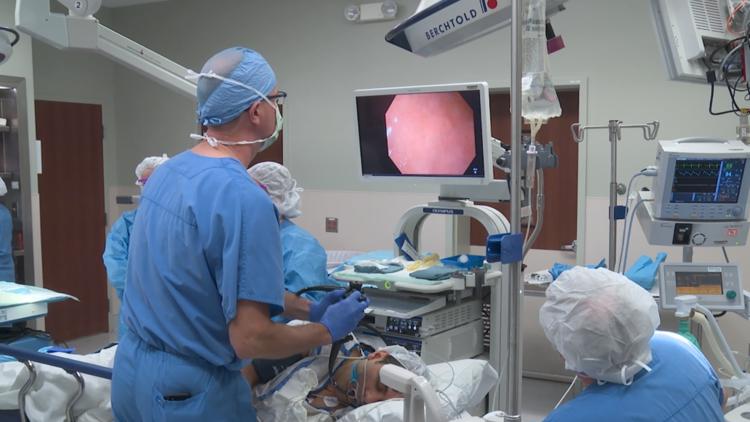ST. LOUIS — You're going to need to get your first colonoscopy earlier than you might think.
The American Cancer Society's (ACS) newest guidelines say you should get your first colonoscopy at age 45. The change was announced last spring, but you may have missed it because of the pandemic.
March is Colorectal Cancer Awareness Month, and the ACS wants to get the word out.
"The data that is coming out is showing an increased incidence in younger and younger populations,” said Dr. Melissa Tepe, the chief medical officer at Affinia Healthcare. “So, to move the guideline down to catch more of those early cancers is what we want to do."
Since the mid-2000s, the colorectal cancer death rate has been increasing in adults younger than age 55. Scientists don't know why, which makes colonoscopy even more important.
Screenings like colonoscopies can catch pre-cancerous changes in their earliest stage.
But it can be a difficult topic to bring up, even with your doctor.
“Colon cancer is one of those cancers that is just hard to talk about,” said Dr. Tepe. “No one wants to talk about their colon or their stool or their bowel movements, right?”
But Dr. Tepe said it’s a conversation that can save your life.
“I think the more people that do it, the more we talk about it and normalize it, the better it will get,” said Dr. Tepe.
She also believes talking about colorectal cancer with close family and your doctor will reduce the fear some people have of getting a colonoscopy.
Dr. Tepe said there are also alternatives to a colonoscopy. There are stool-based tests that you can do in the comfort of your own home.
“There’s something a called a FIT test, a fecal immunochemical test, as well as the fecal occult test. And there's a new one, Cologuard, which is a multi-targeted stool DNA test, but all of those are stool based.”
Dr. Tepe said the drawback of stool-based tests is that their detection rate is not as high as a colonoscopy. Stool-based screenings also need to be repeated every year, whereas a colonoscopy is typically performed once every 10 years.



